What does “apogee” mean? That’s a question we have heard a lot since we began seeking nominations for Tampa Bay Business & Wealth’s first signature event.
Simply put, the apogee is the highest point of development in something. If your career was a mountain, the top of it is the apogee.
These awards were created to celebrate the achievements of those sitting in a c-level office. Through speaking with our cover story subjects over the past three years, it became clear that those that occupy those c-level positions encounter unique hurdles, and challenges. The pressure, and the worry, they experience is nothing to take lightly.
The finalists you will read about here have accomplished great things in their careers and we are honored to celebrate them. Congratulations to all of you!
CHIEF EXECUTIVE OFFICER
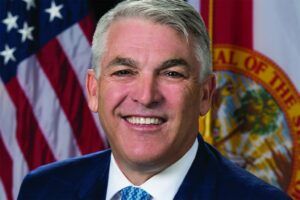
Paul Anderson, Port Tampa Bay
(And president)
Anderson is a former federal maritime commissioner who joined Port Tampa Bay as CEO in December 2012, after holding a series of high-profile leadership positions in the public and private sectors.
What has been the most monumental moment of your career?
I don’t know that one single moment stands out more than the rest—I think of several, at various times. Certainly, being nominated as a federal maritime commissioner by the president of the United States and confirmed by our nation’s Senate is one. Recently, serving on former U.S. Secretary of Transportation Elaine Chao’s commission on human trafficking is another.
But I can hold up a few different things at different times in my career that I consider monumental, in their own ways, such as two years ago, when Port Tampa Bay received three Asian services, for the first time, after we worked so hard to improve our capabilities and our marketing.
How did the COVID-19 pandemic disrupt your specific role in your industry? How did you adapt?
We had to adapt quickly. While not on the front lines in the same way as our great health care workers, ports needed to keep cargo moving: from energy products, building materials and e-commerce to items on grocery store shelves, so we never closed.
COVID did present many challenges, especially in those early days when everyone else was closed. Obviously, our cruise business has suffered but there have been some positive outcomes and opportunities, too, as we are the most cargo diverse port in Florida.
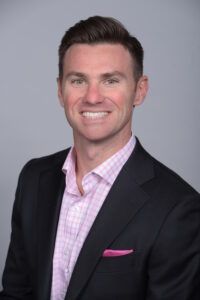
Ed Buckley, Peerfit
(And chairman)
Buckley leads Peerfit’s expansion strategy by driving national partnerships, business development and fundraising. Under his leadership, the company has raised more than $50 million, serves more than 15,000 clients and completed an eight-figure merger and acquisition transaction.
What challenges have you faced in your career? How did you overcome those challenges?
Being a growth company during COVID presented the ultimate challenge. We continued to drive value for our clients, and did so with reduced staff and resources. While every company had to find ways to survive during COVID, and the economic lockdown, growth tech companies are expected not just to survive but continue to grow 50% to 100% each year. This presented us with a unique challenge: grow in an industry with 90% supply closures, with 30% less staff and significantly less cash available to invest in our growth.
As a leader, this time was a challenge, because it required me to hone in on two different skill sets—keep our teams energized, and positive, during times of unrest; but also work efficiently, and aggressively, to ensure we stay ahead in regard to revenue.
What has been your proudest professional moment?
We were one of the first companies to truly embrace remote culture, and flexible work schedules, before the rest of the country. And this was not without its challenges. Our board is made of people who made their fortunes in real estate and always pushed us to get an office.
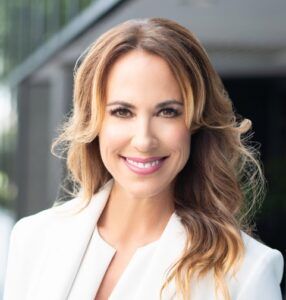
Carrie Charles, Broadstaff
Charles is CEO of Broadstaff, a staffing firm dedicated to the resource needs of telecom and technology.
She is also a member of the board of directors for Cablerunner International. She is a board member for the Women’s Wireless Leadership Forum, an advisory board member for NEDAS and a board member for the National Pediatric Cancer Foundation.
What challenges have you faced in your career? How did you overcome those challenges?
I have lost everything, twice, [closed two companies] and rebuilt new companies bigger than before. I succeeded by not being too proud to go back to basics, and start from scratch, then work twice as hard to get back on top, learning lessons from failures. The second time I lost it all was when my son was fighting cancer, and I was going through a divorce. Mental toughness, and faith, got me through.
Being a single mom, and an entrepreneur, I was responsible for everything for my two kids for the past 14 years—practices, games, schoolwork, travel sports, discipline, support, meals, college move ins and outs. I believe work-life balance is a myth. Work and life are not separate—they are integrated as one. I hired support, even when I couldn’t afford it. I involved my kids in my business and taught them how to thrive in the face of adversity. I let them see the messiness of life and taught them how to excel in the midst of discomfort. They are both on track to be entrepreneurs.

Joy Gendusa, PostcardMania
(And Founder)
Gendusa is an entrepreneur, business owner, author, keynote speaker and philanthropist. She has grown her company, PostcardMania, from a small startup into an industry leader that generated over $64 million in 2020, currently employs 300 people and spans a 69,000-square-foot custom-built facility in Clearwater.
What has been the most monumental moment of your career?
Completing our recent pivot from a direct mail marketing company to a tech company. It’s a journey we started in 2013, back when we decided to start offering digital products in addition to direct mail—so, Google ads, website development, email marketing, social media marketing.
Our entire mission is to make marketing—which gets more, and more, complicated by the day, it seems—easy and attainable for everyday small business owners so they can attract more leads, grow their businesses, hire more people.
How did the pandemic disrupt your specific role in your industry? How did you adapt?
We continued growing and grabbed more market share after an initial five-week earnings crash, when we were down 41%.
We continued marketing, despite all indications telling us not to, banking on the likelihood that competitors would cut back. This allowed us to increase leads by 9.24% in the six months following May 1, 2020, averaging an extra 186 leads, per week, without increasing budget.
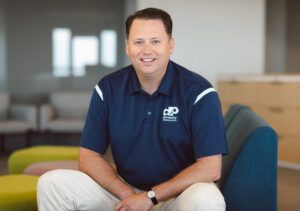
Shirl Penney, Dynasty Financial Partners
(and president)
Penney is a frequent speaker at industry events, often quoted in various financial publications, and was named to Investment News’ 2015 list of 40 most influential people in wealth management under the age of 40. He was also named to the 2016 inaugural list of Icons and Innovators in wealth management by Investment News.
What challenges have you faced in your career? How did you overcome those challenges?
As a homeless kid from rural Maine who dreamed to work in finance on Wall Street, I had to overcome a lot of challenges along the way. I bought my first suit for $13 at the Salvation Army, rode a bus from Maine to New York City and interviewed in an industry/city where I knew no one. I climbed my way up the ladder at Citi Smith Barney and I was inspired by our entrepreneur clients to start my own business, Dynasty Financial Partners.
How did the pandemic disrupt your specific role in your industry? How did you adapt?
I’m a big believer that disruption accelerates trends that are already underway. Dynasty works to tech-enabled all aspects of the wealth management business and, thus, when the world went ‘virtual,’ our services became even more important to our advisers and their clients. Our technology allowed advisers to seamlessly work from home and connect with their clients in a safe and remote way.
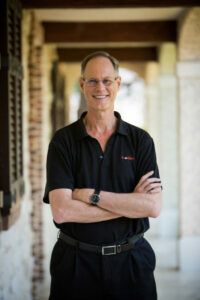
Stu Sjouwerman, KnowBe4
A serial entrepreneur and data security expert with more than 30 years in the IT industry, Sjouwerman is the author of four books, with his latest being Cyberheist: The Biggest Financial Threat Facing American Businesses.
Along with his CEO duties, he is editor-in-chief of Cyberheist News, an ezine tailored to deliver IT security news, technical updates and social engineering alerts. He is a six-time Inc. 500 award winner.
What has been the most monumental moment of your career?
The most monumental moment of my career, so far, has been when KnowBe4 became a publicly-traded company. It was a lot of years of hard work, by our team, and the culmination was when our copresidents got to ring the Nasdaq bell on Wall Street back in April.
How did the pandemic disrupt your specific role in your industry? How did you adapt?
The pandemic helped to further emphasize why organizations need security awareness training and simulated phishing testing. I view my role, in the industry, as helping others to better protect their organizations from the latest cyberthreats. I would say that the pandemic has made me adapt to getting the message across even stronger, about the need for new-school security awareness training to prevent cyberattacks. I am helping even more cybersecurity professionals protect their organizations.
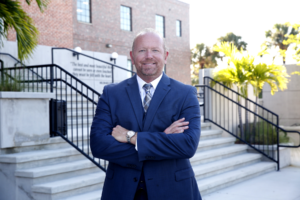
Jason Woody, Lions Eye Institute for Transplant and Research
(And president)
Woody has more than 30 years’ tenure as president and CEO of Lions Eye Institute for Transplant and Research. He has grown the organization from a local, single-service organization into a global, large-scale, multifaceted health care organization.
What has been your proudest professional moment?
My proudest moment is also a profound, and heartbreaking, moment for me, personally. I, unfortunately, lost my sister in 2020. She was only 43 years old; however, when she was 16, she made the bold decision to be an organ donor. Her commitment to saving lives was magnified by the work she witnessed me do throughout my career. I was able to personally ensure that her wishes were honored, and she was able to give the gift of sight to someone in need. Her gift was a profoundly personal example of our tireless work over the past three decades.
What are some ways you give back to the community?
I’m a Tampa native, so I’m passionate about the community. I want to be a catalyst for positive change in our region. I focus on business development and recruitment in our community through the Tampa Bay Chamber, where I’m also a 2014 graduate of Leadership Tampa. I also serve on the board of the Tampa Bay Economic Development Council.
CHIEF FINANCIAL OFFICER
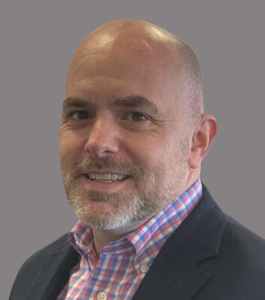
Ken Bowles, WilsonHCG
Bowles oversees accounting, finance, forecasting and private and institutional financing. He has more than 20 years of experience in corporate leadership and finance. He joined WilsonHCG from a Florida-based technology firm, Tribridge, where he served as CFO.
What challenges have you faced in your career? How did you overcome those challenges?
I’ve faced a few challenges in my career; economically, the recession in 2008 and the COVID-19 pandemic. Another major challenge was transitioning from the military to a corporate role. I overcame those challenges by focusing on the long term, never making rash decisions, always having as much data as possible and realizing that sometimes your gut instinct is right.
How did the pandemic disrupt your specific role in your industry? How did you adapt?
The pandemic’s impact on my role in the talent industry was felt within a few months of the onset. Hiring, across many industries, was either delayed, deferred or frozen, making it difficult to manage our resources efficiently for the short term.
The focus was maintaining as many team members as possible, to support our business and to partner with clients, as the market rapidly changed.
Our teams made sacrifices across the board, at all levels, to ensure we could support the resourcing levels and have the business prepared to hit the ground running when demand returned.
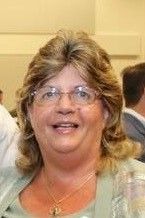
Martine Yaldor, PBX-Change
Yaldor was educated as a geochemist. She says she’s a salesperson by instinct and a Jewish mother by genetics.
What challenges have you faced in your career? How did you overcome those challenges?
In the early years, my greatest challenge was that in South Africa, married women were expected to be ‘barefoot and pregnant,’ not geochemists looking for work in the world of field sciences. My solution was to work for the university where I obtained my degree, to assist in training science teachers who came for refresher courses, helping them to inspire young women and girls to look to the sciences as a career.
In the later years, the greatest challenge was the balance between my responsibilities as a business owner and my family. Without the incredible partnership with my husband, children, key employees and valued customers, I would never have been able to stick to my mantra that ‘family always comes first.’
What has been the most monumental moment of your career so far?
The pandemic afforded PBX-Change the opportunity to provide free internet access to an underserved community, during a time that was extremely difficult for people in all walks of life. We were able to do what we do best in an environment that was less than ideal and provided an essential, and quality, service. Without intending it to be so, this act of philanthropy has pushed us into the spotlight of Tampa business leaders, which, in the past, had eluded us, despite the quality and reliability of the service we provide.
CHIEF LEGAL OFFICER
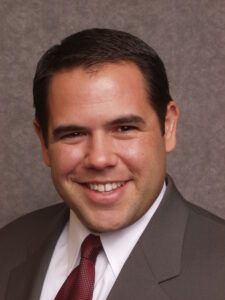
Manny Alvare, MarineMax
(Corporate counsel)
Alvare has been the sole in-house counsel, in the role of corporate counsel, for MarineMax since December 2018. He has held previous positions as vice president of legal and human resources with Comcar Industries, assistant general counsel with Infilaw Corporation, general counsel and interim CEO for Creative Recycling Systems, general counsel with the Tampa Bay Buccaneers and litigation counsel with Walter Industries.
What challenges have you faced in your career? How did you overcome those challenges?
Traditionally, people have been hesitant to involve the legal department, often defining it as the company’s naysayer. In each opportunity I have had throughout my career, I have strived to dispel this by introducing easy accessibility and making efforts to avoid the word ‘no.’ I encourage early communication so that issues can be identified before they become too problematic, thus reducing potential liability and reaching solutions that further benefit the company, which meets the expectations of the board [of directors] and the shareholders. The ancillary benefit results in reduced outside legal expenses, happier team members and satisfied customers.
What are some ways you give back to the community?
I am involved with the nonprofit breast cancer organization, Driven by Heart, supporting more than 3,000 women, and providing pro-bono legal services to them. As an alumnus of [Tampa’s] Jesuit High School, I assist their fund-raising efforts in support of their vision, values and continued growth. Recently, I co-chaired Jesuit’s annual Father-Son Fishing Tournament designed to promote awareness of the importance of serving as ‘Men for Others’ in the community.
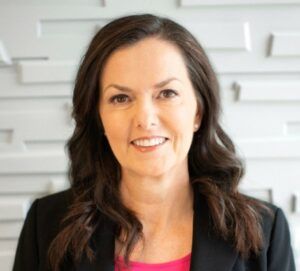
Kelly Lefferts, Bloomin’ Brands
(And executive vice president)
Lefferts was named executive vice president, chief legal officer and secretary in 2019, after serving as group vice president, U.S. general counsel and secretary. She joined Bloomin’ Brands in 1997 and now oversees the company’s legal team.
What challenges have you faced in your career? How did you overcome those challenges?
After graduate school, I joined a law firm where I was the only female associate. I quickly realized the challenge of being different than everyone around me and learned the disadvantage of not having role models, or mentors, who were like me. This led to my desire to improve diversity and inclusion in the workplace. As part of this effort, I co-founded an employee resource group at Bloomin’ Brands focused on developing women leaders. In the five years since the group was founded, we have hosted speakers teaching leadership skills and provided mentors and networking opportunities. I also spearheaded our legal department’s commitment to be more diverse in its hires of outside counsel by partnering with DiversityLab to become Mansfield-certified.
What has been your proudest professional moment?
The most recent being last year, when the pandemic closed most of our restaurants’ dining rooms and our executive team made the decision not to lay off, or furlough, any employees but instead to continue paying all of our employees, even those unable to work due to dining room closures.
CHIEF HUMAN RESOURCE OFFICER
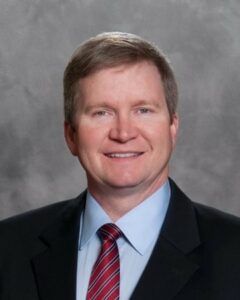
Sean Butler, Titan Technologies
(CHIEF PEOPLE OFFICER)
Butler has more than 25 years of global experience as a human resources executive. Currently, he is the “chief people officer” for Titan Technologies.
Previously, he was executive vice president of people for the cybersecurity firm A-Lign, chief human resources officer at Blue Grace Logistics and vice president of human resources at Cargill/Mosaic Phosphate Companies, where he managed human resource teams and labor relations in China, Brazil, Argentina, Chile, Mexico, Saudi Arabia, India, France, Lithuania, Ukraine and Thailand.
What has been the most monumental moment of your career thus far?
Looking at sheer numbers, I could say that I contributed to the greatest financial success of my career during the 20 years I spent at Cargill/Mosaic phosphate companies. But I feel that I’m really in the midst of the most monumental moments of my career today, as I work with a talented and hard-working HR and recruiting team to attract, retain and support the employees at Titan Technologies as we serve a diverse array of clients that include federal, state and local governments, in addition to commercial and educational customers.
What has been your proudest professional moment?
While I look back fondly on all the successful projects I’ve been a part of, and all the wonderful people I have met throughout my professional career, I am most proud of how the people on my teams have conducted themselves.
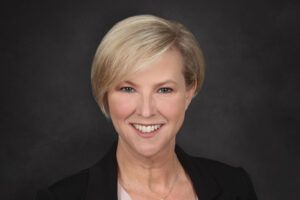
Jen Gudenkauf, Welbilt
(And Executive Vice President)
Gudenkauf, as executive vice president, joined Welbilt in 2020 as a critical part of the executive leadership team.
Gudenkauf has developed an extensive career in human resources, designing and implementing talent strategies for recruiting, training, leadership development, compensation, benefits and human resources technology solutions across multiple industries.
What challenges have you faced in your career? How did you overcome those challenges?
Overcoming a nontraditional start, in a very traditional field, was a sizeable challenge in launching my career. I did not have a degree in human resources or the scholarly credibility that is commonplace for my peers, so I had to cultivate confidence in my ability and navigate this space with tenacity. I was tireless about gaining experience and insistent about taking my place at the table. I found that this challenge, ultimately, served me best in the end; it allowed me to be less structured in my approach, less traditional, more willing to try, fail and explore creative solutions.
What has been the most monumental moment of your career thus far?
Twenty-five years ago, a coworker asked me a simple question that forever changed my professional mindset and solidified a mission to empower underrepresented voices throughout my career. I once took a seat in a row of chairs along the back wall in a board room. A woman asked me, ‘Why are you sitting over there?’ She urged me to take one of the seats at the table, explaining that no one will put me ‘at the table’ until I put myself there first. I have taken every opportunity to share this lesson of believing in yourself with others, empowering their voices.
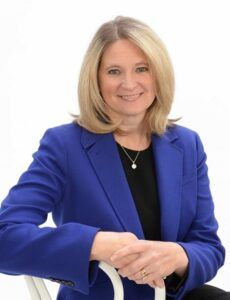
Sandra Ho, Great Bay Distributors
(And vice president)
Ho has built a 30-year career with one of the largest Anheuser-Busch InBev wholesalers in the southeast United States, beginning as an intern. She was promoted to vice president in 2004 and to CHRO in 2019.
What challenges have you faced in your career? How did you overcome those challenges?
It’s challenging to work for a private, family-owned business. The CEO, who hired me, was the founder. I have worked for his son for several decades. In 2021, we completed a succession plan to the third generation of ownership. Each senior leader is so very different in personality, expectation and approach to the business.
I have worked for the same organization, however, have needed to stretch myself with new skills as I have experienced three distinct leadership styles. All of this while maintaining consistent, positive company culture for 350-plus employees.
How did the pandemic disrupt your specific role in your industry? How did you adapt?
As an essential business, we never paused our operations. We made immediate policy changes, with employees as the focus. Our senior leadership team met every week, putting out our communications and stating our position on the ever-changing landscape in our community.
Maintaining a safe workplace, so our employees could complete their daily tasks, required patience, understanding and vigilance on the latest news from health experts. We had to be nimble, and open, to how this was affecting everyone and we needed to be available as questions and fears were expressed.

Erika Lance, KnowBe4
Lance is a distinguished leader, with more than 25 years of experience in human resources. She ensures KnowBe4 maintains a unique, and fun, company culture. Under her leadership, the people operations team has grown 500 percent, from 10 team members to more than 50 team members, in 11 countries, across six continents.
What challenges have you faced in your career? How did you overcome those challenges?
Growing up, I dropped out of school at 14 to help my mother. I began working three jobs to make ends meet. I obtained my GED at 21 and my first ‘executive job’ in HR at 22.
HR was ‘trial-by-fire,’ as I had no formal education in the field and no experience. Failure was not an option, as a young mother with two children who relied on me. I turned to self-learning, and research, and received mentorship along the way. Every challenge I faced ultimately made me stronger and equipped me to lead.
What has been your proudest professional moment?
“My proudest professional moment is seeing others I have worked with succeed. There is no greater feeling than witnessing colleagues achieve the success they deserve. It is rewarding to see how my work can leave an impact on the trajectory of a colleague’s career path.
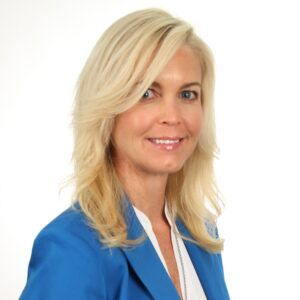
Wendy Larrison, Anchor Glass Container Corp.
(And vice president)
Anchor Glass is a privately-held, North American manufacturer of glass packaging products with more than 2,000 union-represented and nonrepresented employees.
Before joining Anchor Glass, Larrison held the global senior vice president of people and culture at Triad Retail Media, with much of her career in manufacturing working for Gerdau and Jabil.
What challenges have you faced in your career? How did you overcome those challenges?
I have spent most of my career leading people in a manufacturing environment, focusing on learning the ins and outs of the industry to best serve them as a strategic business partner. All the manufacturing organizations I joined tended to have an ‘old school’ mentality and required significant cultural transformations to remain competitive in today’s market, and be sustainable in the long term.
They were all builder roles, which is my passion. I focused on building new ways of working, helping organizations [along with tenured talent/leadership] understand the need for change for long-term viability surrounding people, process and technology. This requires significant stakeholder management, along with short- and long-term change management strategies.
What else would you like the Apogee Award judges to know?
I never expected to have a passion for manufacturing, but it is fulfilling to be a part of something bigger than you that you can believe in, a product that makes a difference, whether it was being the largest recycler of steel and then converting that to new bridges, stadiums, etc. or providing an infinitely recyclable glass container.
CHIEF MARKETING OFFICER
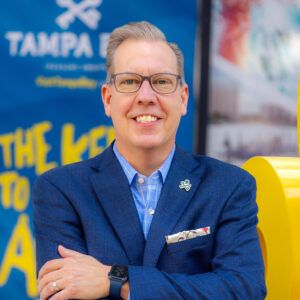
Patrick Harrison, Visit Tampa Bay
Harrison has spearheaded Visit Tampa Bay’s marketing transformation. As a result, it joined the ranks of Hit Impact Tourism counties in Florida and has raised its profile, and economic impact, domestically and internationally.
His campaigns have been honored with over 30 U.S. and international awards, including multiple HSMAI Adrian Awards (honoring top travel marketing), and he was named a Top 25 Extraordinary Mind by HSMAI in 2019.
What challenges have you faced in your career? How did you overcome those challenges?
From 9/11 to the recession in 2008, to the [COVID-19] pandemic, there have always been challenges. And I have always faced them head-on. I always tell staff that you need a thick skin, common sense and a creative spark.
During the recession, we found a way to merge two agencies to provide the financial structure we needed, and during the pandemic, while other convention and visitors bureaus shut down, we went to work relocating conventions, aggressively targeting leisure markets. And, as a result, Visit Tampa Bay leads the state and the country in the recovery.
What has been the most monumental moment of your career thus far?
Most recently, helping to put Tampa on a world stage and safely host a Super Bowl during a pandemic. We were center stage, when the world was watching, and put together hundreds of domestic, and international, interviews to show Tampa in its best light.
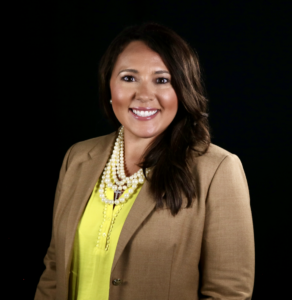
Andra Hedden, Marketopia
(Alnd co-founder)
Hedden has more than 16 years of experience in marketing, and business development and 12 years of experience focused specifically on information technology. Over the past seven years, Marketopia has evolved from a team of two to more than 170.
What challenges have you faced in your career? How did you overcome those challenges?
As an entrepreneur, there are always challenges—especially when you value high growth and scalability in your business. Finding the right talent that shares the passion for growth, and rigorous expansion can be a challenge.
We overcome this by creating a great culture that current employees want to refer friends into and prospective talent wants to be a part of. Another large challenge is staying ahead of the curve. Marketopia provides marketing and lead generation for technology companies. Both marketing, as a business discipline, and the technology industry change in an instant, so staying ahead of this curve and ensuring that we have the right products and services to meet the current need is a tremendous challenge we solve through continuous innovation.
What are some ways you give back to the community?
Giving back to our community is a major passion of mine. Because of this, I started a team, internally, at Marketopia, called the Culture Crusaders, whose mission is to evangelize and foster our culture. Each month the team hosts three events: One, the Helping Hands Event; two, the Health and Wellness Event; and, three, the #Oneteam Event.
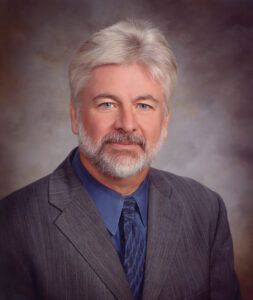
Michael Kilgore, Columbia Restaurant Group
After a career in media, Kilgore became the vice president of marketing and customer experiences at the Straz Center for the Performing Arts. He joined the Columbia Restaurant Group, as CMO, in 2013 as it began to expand into new locations and concepts, including Ulele, Goody Goody and Casa Santo Stefano.
What has been the most monumental moment of your career thus far?
I’m not sure I can pick one. Negotiating exclusive newspaper sponsorship deals with the Tampa Bay Buccaneers and the Tampa Bay Lightning as they opened a new stadium and arena. Locking up virtually every newspaper sponsorship opportunity for the 2001 Super Bowl, exclusively for the Tribune. Winning the annual Outstanding Achievement in Road Marketing from Broadway producers (2009) after less than eight years in a new industry. Helping to open five restaurants, successfully, in three years, including websites, social media, menu creation and public relations.
How did the pandemic disrupt your specific role in your industry? How did you adapt?
Florida restaurants were closed for two months, starting in March 2020. Our marketing team had to keep communicating positivity, and encouragement, letting our community know that the dark was temporary, and light would return. We talked about what we were doing for our staffers, and for the community, even as we also communicated our increased focus on, and improvement of, some restaurant services such as curbside pickup. We successfully reopened, and continue to thrive in adverse conditions.
CHIEF OPERATING OFFICER
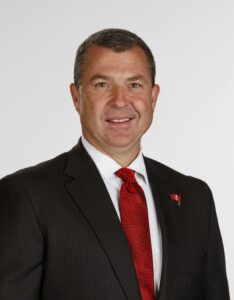
Brian Ford, Tampa Bay Buccaneers
Ford enters his 15th year with the Tampa Bay Buccaneers. In his role as chief operating officer, he oversees all aspects of the organization’s day-to-day business operations and community involvement.
What has been a monumental moment of your career?
Going through the 2020 football season with this team, during a pandemic, and then winning the Super Bowl in our own stadium, there’s nothing quite like it. From top to bottom, everyone pulled together to create a fantastic season that I think our community needed. We always pride ourselves on ensuring that we exceed the expectations of our fans by providing top-of-class service when they come to our games and, while last season was different than most, we still managed to reach that level of excellence for the game-day experience.
How did the COVID-19 pandemic disrupt your specific role in your industry? How did you adapt?
Our top priority going into last season was keeping our staff and team safe every step of the way. We worked tirelessly with all local authorities and government agencies, as well as the Tampa Sports Authority, to ensure that Raymond James Stadium was prepared to host fans for games. I can’t say enough about the work and leadership displayed by all of Team Tampa Bay to come together to ensure that our sports teams were able to play games in front of fans in a safe and responsible manner. I am extremely proud of our entire organization for stepping up as well, with many of our employees having to work from home while still producing an unforgettable in-game experience for the fans that were fortunate enough to attend the games. It was a historic season on so many fronts.
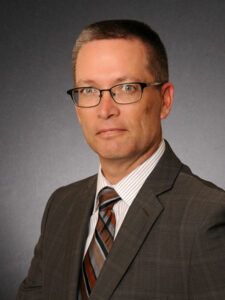
Lewis Jeff Jolly, Celestar Corp.
Jolly spent 22 years in the United States Air Force as an engineer and intelligence officer with a final assignment as a squadron commander in Germany. He started with Celestar Corp. immediately upon retirement and has been with the company for 15 years and was named COO in 2012.
How did the pandemic disrupt your specific role in your industry?
Unexpectedly, the pandemic did not significantly disrupt Celestar’s operation. All our employees were able to continue working, remotely, during the height of the pandemic with no adverse impact on the corporation. Celestar experienced significant growth over the past 18 months.
What are some ways you give back to the community?
In honor of my deceased son, my wife and I, along with Celestar’s philanthropic support, recently partnered with a charitable organization based in Washington, D.C., Winners Lacrosse, to start a chapter here in Tampa. Winners Lacrosse works with inner-city, underserved children to teach them lacrosse at no cost. We are also Ronald McDonald House supporters, sponsoring a room.
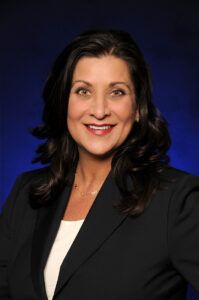
JoLynn Lokey, Visit Tampa Bay
Lokey’s operational and executive management skills keep Visit Tampa Bay, and its affiliated organizations, running smoothly, and efficiently, while providing a collaborative work environment for staff members.
She oversees all facets of administration, accounting, board governance, stakeholder relations, human resources, information technology, accountability, payroll and the Unlock Tampa Bay Visitors Center.
What challenges have you faced in your career? How did you overcome those challenges?
One of my priorities at Visit Tampa Bay has been to expand the diversity of our board by recruiting women. It has been a challenge to recruit fellow women when not a lot of women are No. 1 in their company, which is expected of our board, for example, general managers of hotels or head of attractions. Typically, women fall at No. 2 or No. 3, even though they have a lot to contribute. It was astonishing how much pushback I received from board members when nominating women. Across the board, our male equivalents often see women as being there to provide a service, versus being there as a colleague.
What are some ways you give back to the community?
I serve this community in a variety of capacities including active participation with the Greater Tampa Chamber of Commerce, University of Tampa’s Board of Fellows and serve on the board for Feeding Tampa Bay. In addition, I serve on Feeding Tampa Bay’s governance committee and have contributed many hours to writing, and developing, their board governance structure and employee policies and procedures handbook.
OWNER
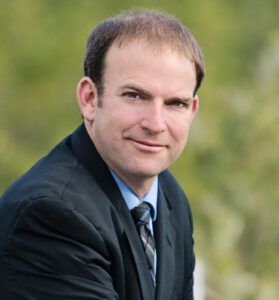
Jason Alpert, Alpert Enterprises
Alpert is Florida’s leading benefit auctioneer who, along with his three partner auctioneers at Alpert Enterprises, stage more benefit auctions than any other company in the state. Alpert, and his team, put on a fundraising show like no one else, helping to raise more than $200 million since its inception in 2007.
What challenges have you faced in your career? How did you overcome those challenges?
The benefit auction industry is unique in that everyone thinks they know someone who can call an auction and will do it for free. Licensed auctioneers fight the “free battle,” often. There are local newscasters, DJs and others who can call an auction, but hiring a licensed benefit auctioneer more than pays for itself in the additional revenue we’re able to help generate for the charity. Alpert Enterprises has overcome the ‘free battle’ by establishing an impeccable reputation and educating our clients that an auctioneer’s fee is as much an investment as is it a fee.
What has been the most monumental moment of your career?
The most memorable moment of my career, thus far, was when we surpassed $200 million in funds raised exclusively through live auctions and Bid From the Heart for our charities. When we first started the company, I thought $25 million was a lofty goal. Then, $50 million and $100 million were our benchmarks. During the pandemic, we surpassed, cumulatively, $200 million and are raising money for charities faster than ever before. $300 million isn’t far behind.

Phil Yost, Compass Land and Title
Compass Land and Title has little competition in the state of Florida, when it comes to providing service at the highest level. Year in and year out, Compass Land and Title has won industry awards for both dollar-volume closed and lowest claims rates in the industry, while still maintaining a small, “boutique,” personal service touch.
What challenges have you faced in your career? How did you overcome those challenges?
I launched Compass undercapitalized and then had to operate through the crash of 2008. The above challenges were met with an unwavering work ethic. Most important to my success, and that of Compass, is the hiring of the most dedicated, and intelligent, staff that mirrors the nonstop grind ethos. I also believe it is important to share the spoils with your team.
What are some ways you give back to the community?
I am super involved in many philanthropic endeavors. I believe it is imperative for business owners and executives to give back to the communities that support their businesses.
I am currently involved with the American Cancer Society’s Cattle Baron’s Ball, The Arts Conservatory for Teens, the Florida Orchestra and several local film projects.
PRESIDENT
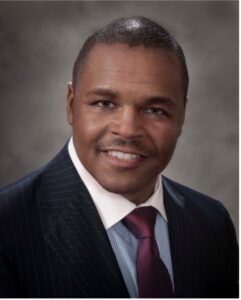
Hugh Campbell, AC4S Technologies
Campbell serves on the BayCare Healthcare System Board of Trustees. Baycare is a $4.6 billion dollar health care organization with more than 29,000 employees. He also serves on its audit subcommittee.
Campbell also is the chairman of the board of directors for the CEO Council of Tampa Bay. The CEO Council of Tampa Bay has more than 200 CEO members, representing more than 30,000 employees and $6.2 billion dollars in revenues.
What has been the most monumental moment of your career?
I would say getting awarded a $250 million dollar contract by the U.S. State Department, in December 2012, to help support anti-terrorism operations in Yemen. That contract fundamentally changed our last company and propelled us to a wide variety of business operations. It is hard to overstate the significance of that moment and all the resulting events afterward.
How did the COVID-19 pandemic disrupt your specific role in your industry? How did you adapt?
We experienced very little disruption. I am currently running a technology support business. The pandemic actually propelled our growth, as we had so many customers realize they could no longer limp by with inadequate and unprofessional technical support. We signed three new customers from Feb. 1 to March 15, 2021, that were each in the top five of our largest customers.
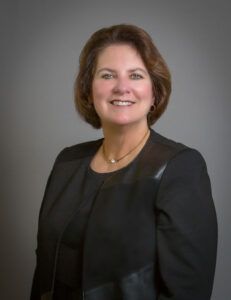
Rita Lowman, Pilot Bank
Lowman’s 44-year banking career has taken her across many paths, from state administration executive with NationsBank/Bank of America, to managing more than 20 acquisitions, including the largest merger completed to that date, the NationsBank/Barnett merger
She was elected 2017-18 chair of the Florida Bankers Association and was the third woman in the 130-year history to serve in that capacity.
What has been the most monumental moment in your career?
I have been fortunate to have many. I am passionate about emerging leaders and mentoring. One of the moments that I feel made a difference was taking 25 emerging leaders to Washington, D.C., and giving these young bankers an opportunity to advocate for our industry as I do when I am meeting with our congressional and senate leadership. The young bankers met 10 congressional leaders, visited the FDIC in a 36-hour period, and were able to ask questions and visit the U.S. Capitol.
I am also extremely proud to have been a major part of the growth of C1 Bank and have had the opportunity to ring the morning bell on Wall Street, when we took the company public. The experience, I believe, was once in a lifetime.
What else would you like the Apogee Award judges to know?
I believe in empowering others to achieve success. I also live by two elements of character – honesty and integrity. Ethical culture starts from the top of the organization.
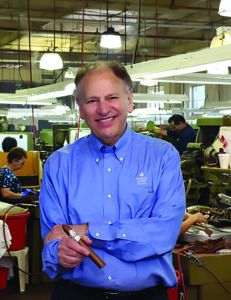
Eric Newman, J.C. Newman Cigar Co.
Newman, along with his brother Bobby, operates America’s oldest premium cigar company. Based in Tampa, J.C. Newman manufactures around 35 million cigars in its Ybor City and Esteli, Nicaragua, cigar factories.
What has been the most monumental moment in your career?
I would say that my brother Bobby and I turned around what was, basically, a bankrupt business into one of the leading companies in the premium cigar industry today. When my father, brother and I engineered a leveraged family buyout of the 11 descendants of J.C. Newman in 1986, the relatives got the money and the three of us got the debt and the ‘opportunity.’
What has been your proudest professional moment?
There are two proud moments that, particularly, come to mind. In the early 2000s, my son, Drew, my father, Stanford, and I were walking down an aisle at our main industry trade show one morning and someone shouted out, “Look, there go three generations of Newmans.” I still get teary-eyed today when I think about that special moment.
And the second deals with how we treated our employees during the pandemic. 2020 was an especially difficult year for all Americans, including our employees. While they still had jobs, many in their family lost theirs. Because of their needs, and the fact that we had had a good year saleswise, we gave everyone working in our factory and office a $1,000 holiday bonus [something that had never been done before].
